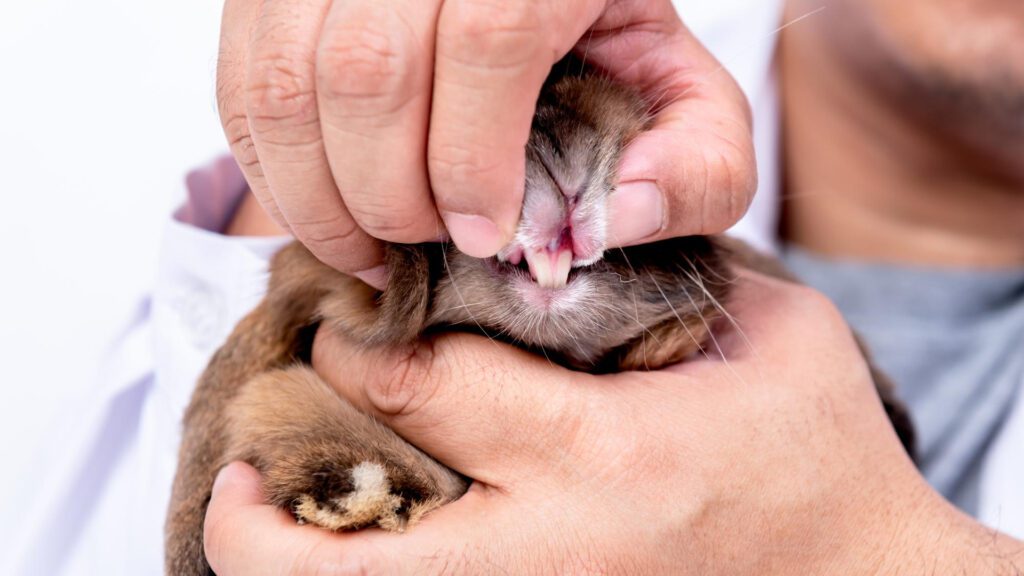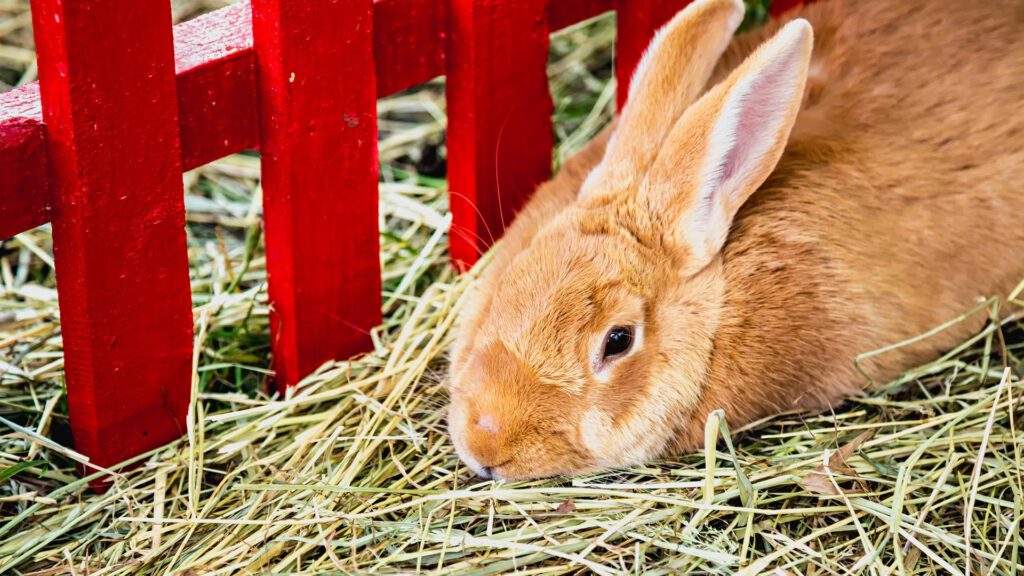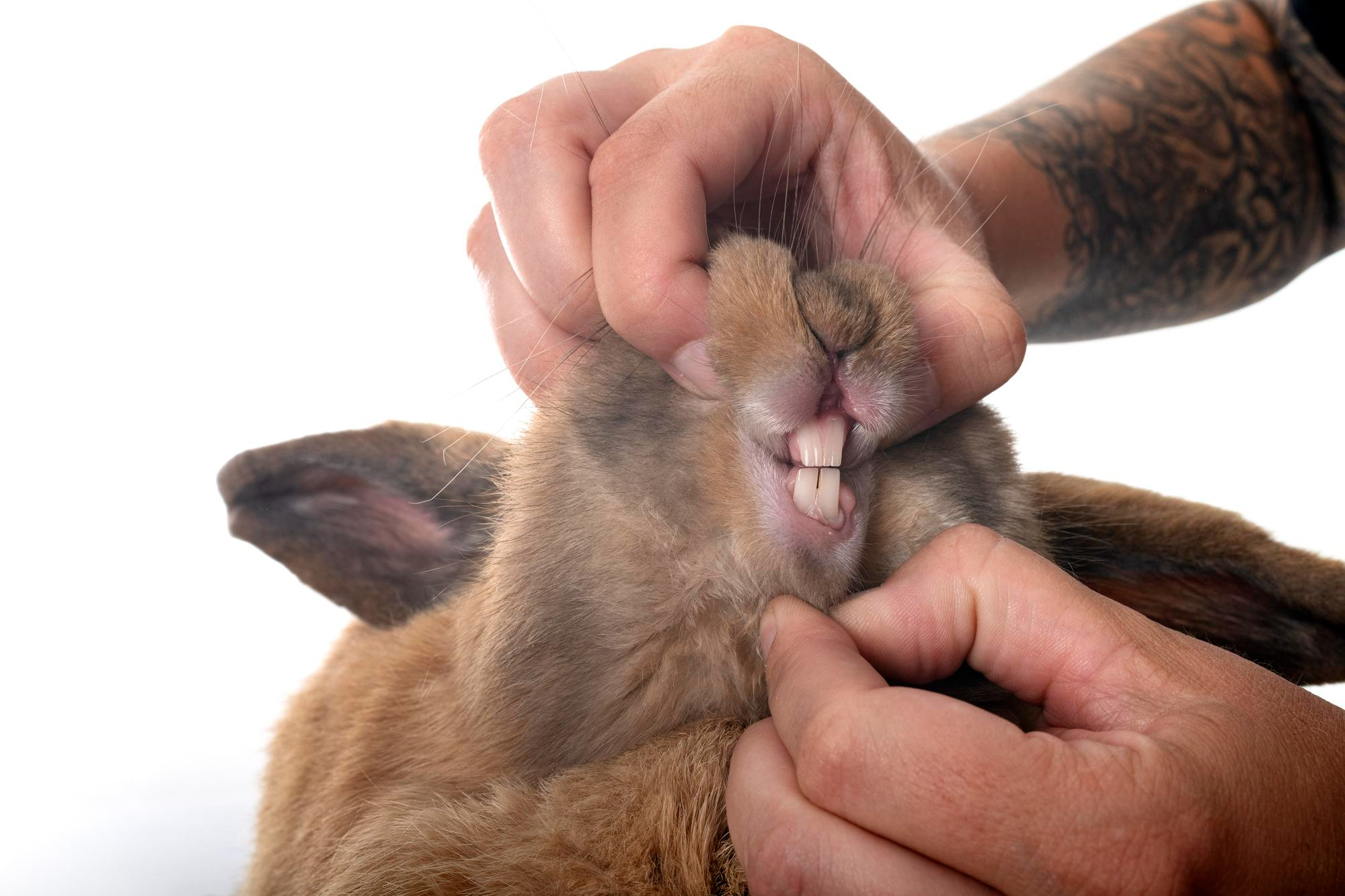Ever seen a rabbit nibbling at grass or hay? It might cause you to wonder: ‘How many teeth do rabbits have?’
Read this article to find out!
So, How Many Teeth Does an Adult Rabbit Have?
Just like humans, rabbits are diphyodonts, which means rabbits have two sets of teeth over their lifetime.
Initially, they have a set of deciduous (primary) teeth totaling 16. However, as early as three to five weeks of age, these milk teeth are entirely replaced by their 28 adult teeth, also called permanent teeth. These can vary slightly by breed.
Their dental structure is specifically adapted to their herbivorous diet, allowing them to efficiently chew and grind tough plant materials.
Breakdown Of Rabbit Teeth
Rabbits possess four main types of teeth: upper incisors, lower incisors, a larger set of cheek teeth, and a smaller pair of peg teeth located behind the upper incisors.

Incisors
At the forefront of the rabbit’s mouth are the six incisors, 4 in the upper jaw and 2 in the lower jaw. Behind the top incisors are two little peg teeth.
These sharp front teeth are perfectly designed for grasping and tearing food into manageable pieces.
Cheek Teeth
Cheek teeth include both premolars and molars. They are used for grinding and crushing fibrous food, which is essential for their digestive process.
Premolars
There are six upper-premolars (three on each side) and four lower-premolars (two on each side), making a total of ten.
Molars
There is a total of 12 molars evenly distributed. There are six upper and six lower molars, three molars on each side of the upper and lower jaw.
FYI– Rabbits are often thought to have canine teeth, but this is not true.
Causes Of Dental Diseases in Rabbits
Dental diseases in rabbits are a significant concern for pet owners and veterinarians alike. Two common causes of dental issues are:
1. Malocclusion
In this condition, the top and bottom jaw don’t align correctly. This means that tooth alignment is incorrect, and the teeth won’t wear down efficiently.
It can cause severe ulcers, making it hard for rabbits to chew or eat.
2. Overgrown Teeth
When a rabbit doesn’t eat enough high fiber food, its teeth won’t wear down or trim naturally, causing them to grow too long.
Overgrown cheek teeth can trap the rabbit’s tongue and cause them to drool.
Note: An improper diet lacking in sufficient fiber can also affect their teeth, leading to painful conditions that may require a vet.
Prevention and Dental Care

Preventing dental diseases in rabbits involves the following steps:
Ensure a fiber-rich diet, such as fresh hay, supplemented with fresh vegetables.
Limit pellet intake, as this reduces the grinding and lateral chewing motion necessary for proper tooth wear.
Routine dental health exams can help catch dental problems early.
Provide safe chew toys to promote natural chewing behavior, which can help keep teeth healthy.
Unique Feature of Rabbit Teeth
Like guinea pigs, rabbits have an elodont dentition. Their teeth continue to grow throughout their lives.
This adaptation helps them maintain a healthy length as they wear down their teeth through regular chewing of tough plant material.
Fun Facts About Rabbit Teeth
Here are some fun facts about rabbits’ teeth:
Rabbits’ lower jaw is wider than the upper jaw, so their maxillary and mandibular teeth never touch. As a result, rabbits chew both up and down and side-to-side.
Just like cats, when rabbits feel content and at ease, they might gently grind their teeth.
Rabbits’ front teeth grow quicker than the back teeth. The growth rate of the lower teeth is higher than that of the upper teeth.
Rabbits don’t need regular teeth brushing since their teeth are constantly worn down and renewed.
Potential Dental Problems
There are some problems that can arise from improper dental health in rabbits.
If their teeth do not wear down correctly, it can lead to gaps between teeth called diastema, overgrown teeth, and dental abscesses.
Final Thoughts On Bunny Teeth
Now you know that rabbits have 28 teeth, and they keep growing throughout their life. By giving your rabbit the right food and care, you can help keep their teeth in great shape!


